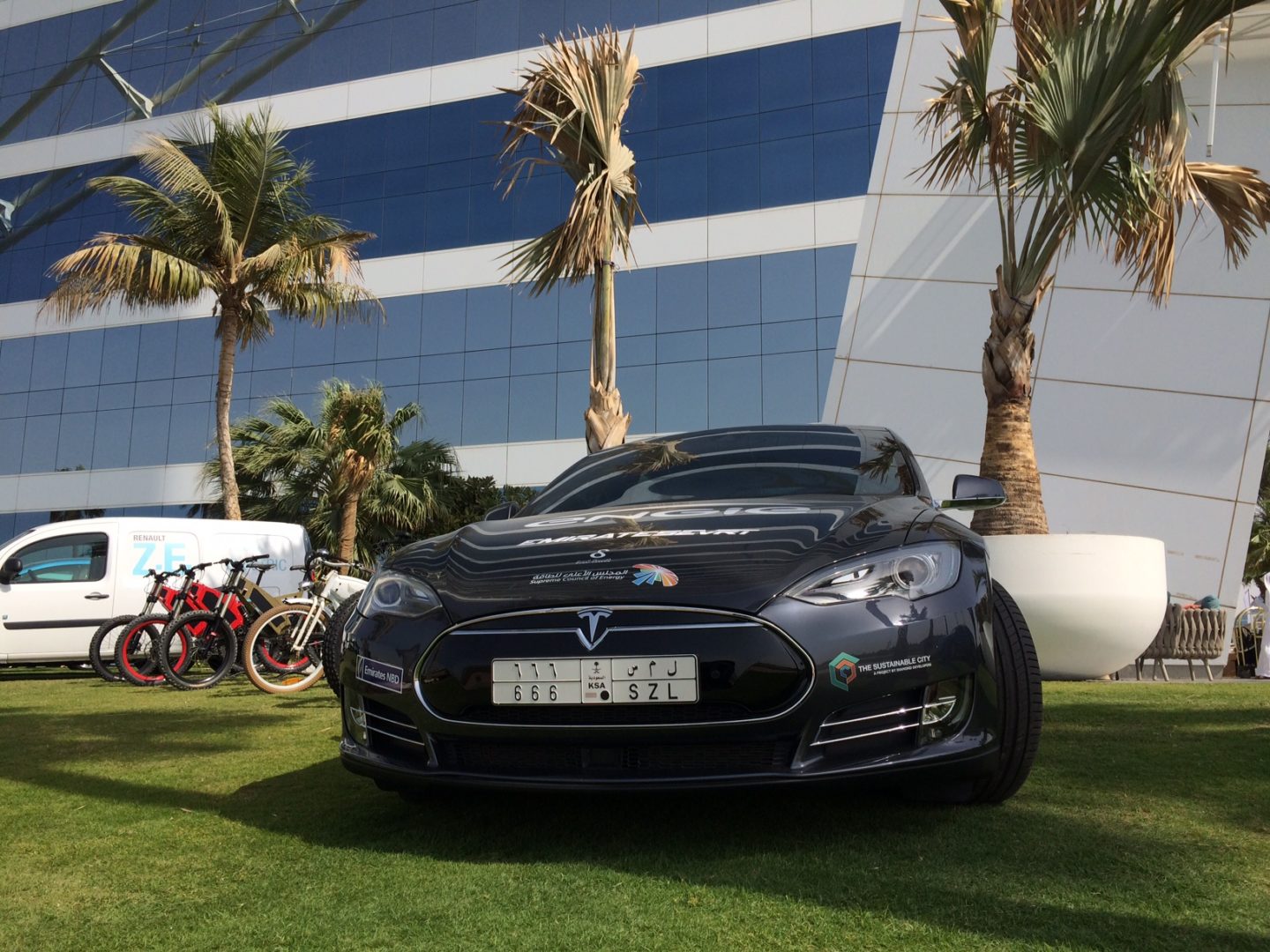

Initiatives launched to encourage wider electric car adoption
France-based Engie plans to start a conversation with the Abu Dhabi Water and Electricity Authority (Adwea) for the potential installation of electric car chargers in the emirate.
They are still undertaking their own studies and planning, Mark Senten, executive vice-president and head of services at Engie Middle East, South & Central Asia and Turkey, told MEED on the sidelines of the ongoing Emirates Electric Vehicle Car Road Trip.
Engie has already installed electric car battery chargers in eight Accor hotels across the UAE.
The four-day road trip event was used to stage various initiatives and proposals ranging from cheaper loan rate to potential exemptions from toll fees to expedite the wider adoption of electric cars in the UAE.
Dubai-based Emirates NBD said it is making available effective immediately a loan product tailored for electric cars that is 25 percentage points lower than loans designed for regular cars.
The bank is also negotiating with France-based insurance provider Axa for an insurance product that will potentially cover electric cars in the UAE, according to Suvo Sarkar, senior executive vice-president and group head for the banks retail banking and wealth management.
Sarkar said they are hoping for the UAE Central Bank to consider extending the five-year loan cap for regular cars to seven years for electric cars.
These initiatives are seen provide an impetus into the adoption of the more environment-friendly vehicles, apart from the hype generated by Teslas electric cars.
In a way Dubai is a good place to start it is a perfect breeding ground for a culture where people will buy a Tesla because it is a Tesla, explains Senten.
Such hype, however, could only go so far unless a strong set of government policies are put in place. What kicked off green mobility usage in US and Europe was the formulation of policy framework that ensures funding is available this made the entire concept more viable. This has to happen in the region as well, Senten said.
Unlike the subsidy for electricity and water production, Senten argues that a subsidy for electric cars is more efficient since they are merely looking at short-term measures and subsidies to jumpstart the adoption of electric vehicles. The subsidy for carbon resources extend to the fuel and production of electricity, which have a greater scale given that the large part of the population is still using internal combustion engine vehicles, he explains. Were talking about a different, short-term scale of subsidies for electric cars.
Unlike regular cars, there is an option to generate renewable energy and charge battery cars for free over their life time, according to Senten. Using wind or solar energy, you will be looking at a one-time cost of a photovoltaic (PV) panel or wind turbine and its installation and maintenance cost. Once you have a PV panel, you could charge your car for free through its life cycle, he adds.
Other measures that policy makers can look into involves the reduction or removal of import dties on electric cars as well as exemption from road toll charges such as the salik in Dubai.
List price for Tesla cars range from $66,000 for the basic units to $150,000 for the supercharged editions. France-based Renault is also among the early manufacturers of electric vehicles.
These cars have a battery configuration that range between 42 and 85 kilowatts. Car charging fees are estimated at 29 fils per kilowatt, which means full charging of a 60kw battery could cost about AED17.
You might also like...

Rainmaking in the world economy
19 April 2024

Oman receives Madha industrial city tender prices
19 April 2024

Neom seeks to raise funds in $1.3bn sukuk sale
19 April 2024

Saudi firm advances Neutral Zone real estate plans
19 April 2024
A MEED Subscription...
Subscribe or upgrade your current MEED.com package to support your strategic planning with the MENA region’s best source of business information. Proceed to our online shop below to find out more about the features in each package.





